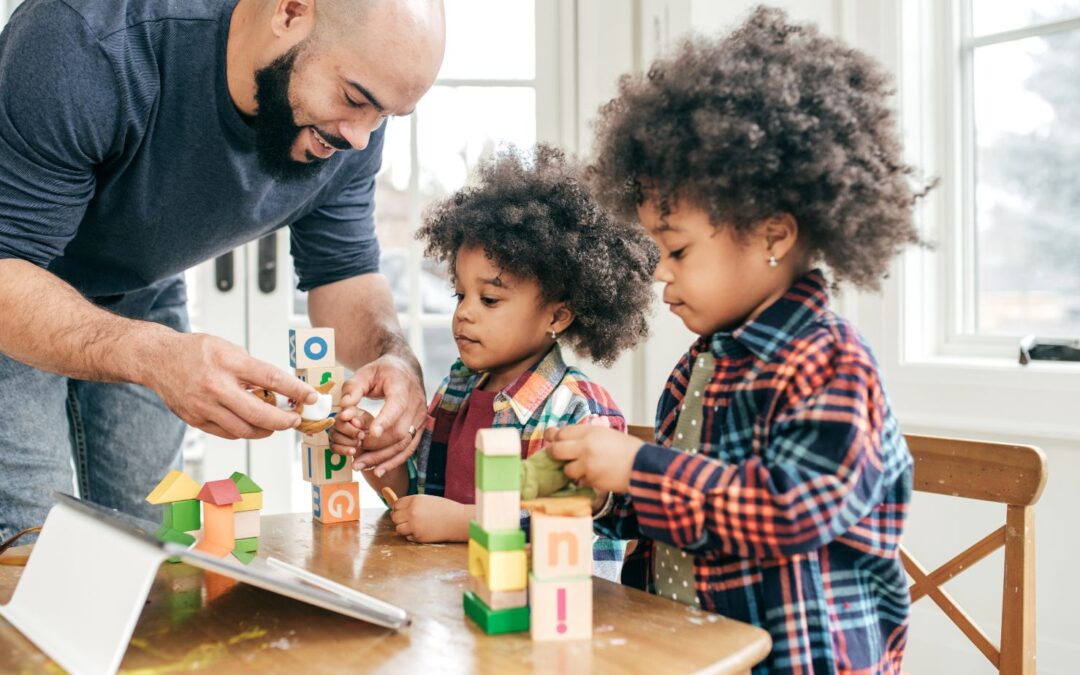As a parent, watching your child grow and develop into their own person is one of life’s greatest joys. From their first words to their first steps, each new milestone is exciting to witness. While every child develops at their own unique pace, understanding the typical developmental milestones can help you support your child’s learning and track their progress. This guide to major child development milestones from infancy through age 12 will help parents know what to look for as their children blossom
Infancy (Birth to 12 Months)
The first year of life is characterized by rapid growth and change. On average, infants hit the
following milestones:


Physical Milestones:
– Lifts head while on stomach: 3 months
– Rolls over: 4-6 months
– Sits without support: 6 months
– Crawls: 8-10 months
– Pulls up to stand/cruise: 9-12 months
– Walks holding on: 10-12 months
– Pincer grasp to pick up objects: 10-12 months
Cognitive Milestones:
– Responds to sounds and sights: birth
– Begins to develop object permanence: 4-7 months
– Babbles consonant sounds: 6 months
– Says first words: 10-15 months
Social/Emotional Milestones:
– Smiles spontaneously: 1-3 months
– Laughs: 3-4 months
– Recognizes familiar faces: 4-6 months
– Anxiety around strangers: 6-12 months
– Imitates gestures: 9-12 months
Toddlerhood (Ages 1-3)
The toddler years are an exciting time as children gain independence and confidence. They hit
milestones such as:
Physical Milestones:
– Walks independently: 12-18 months
– Feeds self with spoon: 18 months
– Toilet training readiness: 18-36 months
– Climbs well: 2 years
– Kicks ball: 2 years
Cognitive Milestones:
– Points to pictures when named: 15-18 months
– Says 50+ words: 18-24 months
– Combines 2 words: 18-36 months
– Counts to 3: 24-36 months
– Names colors: 2-3 years
Social/Emotional Milestones:
– Parallel play: 2 years
– Increased imaginary play: 2 years
– Less separation anxiety: 2 years
– More cooperative play: 3 years


The Preschool Years (Ages 3-5)
The preschool years see rapid advancement in language, motor skills, imagination, and social
development. Typical milestones include:

Physical Milestones:
– Hops on one foot: 3-4 years
– Catches bouncing ball: 3-4 years
– Draws circles/squares: 3-4 years
– Uses fork and spoon: 3-5 years
– Dresses and undresses: 3-5 years
Cognitive Milestones:
– Recalls parts of a story: 3 years
– Correctly names colors: 3-4 years
– Counts 10+ objects: 4 years
– Prints letters/numbers: 4-5 years
Social/Emotional Milestones:
– Increased imagination in pretend play: 3 years
– Takes turns willingly: 3-4 years
– Seeks approval from teachers/parents: 3-4 years
– Cooperates/plays in groups: 4-5 years
Early School-Age (Ages 6-9)
As children enter elementary school, they become more independent. Milestones typically
reached during this stage include:
Physical Milestones:
– Performs more complex movements like somersaults: 5-6 years
– Copies triangle shapes: 6 years
– Develops coordination for sports: 7-8 years
– Refines handwriting skills: 6-9 years
Cognitive Milestones:
– Counts to 100+: 6 years
– Reads simple words: 6-7 years
– Reads independently: 7-8 years
– Knows math facts: 8-9 years
Social/Emotional Milestones:
– Enjoys team games: 6 years
– Very concerned about fairness: 7-9 years
– Worries about school performance: 8-9 years

Late Childhood (Ages 10-12)
As kids approach adolescence, they gain skills to handle more complex ideas and social
relationships:

Physical Milestones:
– Puberty begins: 8-14 years
– Increased limb length/strength: 10-12 years
Cognitive Milestones:
– Organizes belongings systematically: 10 years
– Thinks abstractly: 11-12 years
– Applies logic: 11-12 years
Social/Emotional Milestones:
– Worries about social status: 10-12 years
– Battles with parents: 10-12 years
– Develops more complex friendships: 11-12 years.
Remember that these timelines are averages and each child advances at their own pace. While most differences even out over time, if you have concerns about your child’s development, talk to their pediatrician. Working closely with your child’s doctor and teachers will help you provide the support they need to reach their potential
The Importance of Play
While milestones provide helpful guidelines, it’s important to remember that play is essential to child development. Unstructured play allows kids to use their creativity while developing motor abilities, emotional regulation, decision-making, and more. Be sure to provide plenty of opportunities for free play. Our center offers a play-based curriculum utilizing games, pretend play, blocks, puzzles, and more to facilitate learning while keeping kids engaged. If you have questions about the role of play in your child’s growth, contact us today!
Ready to Learn More?
Now that you have an overview of major developmental milestones from the early years through late childhood, you are empowered to support your child’s exciting journey. While all kids reach milestones differently, understanding the roadmap helps you know what to look for along the way.
If you have questions about your child’s particular development or want to learn about our personalized programs for children ages 18 months to 12 years, contact Crystals Childcare & Preschool today. Our expert team supports each child’s growth at their own pace in a safe, secure environment focused on education and play. Reach out now at (432) 687-5904 info@crystalschildcare.org to learn more

